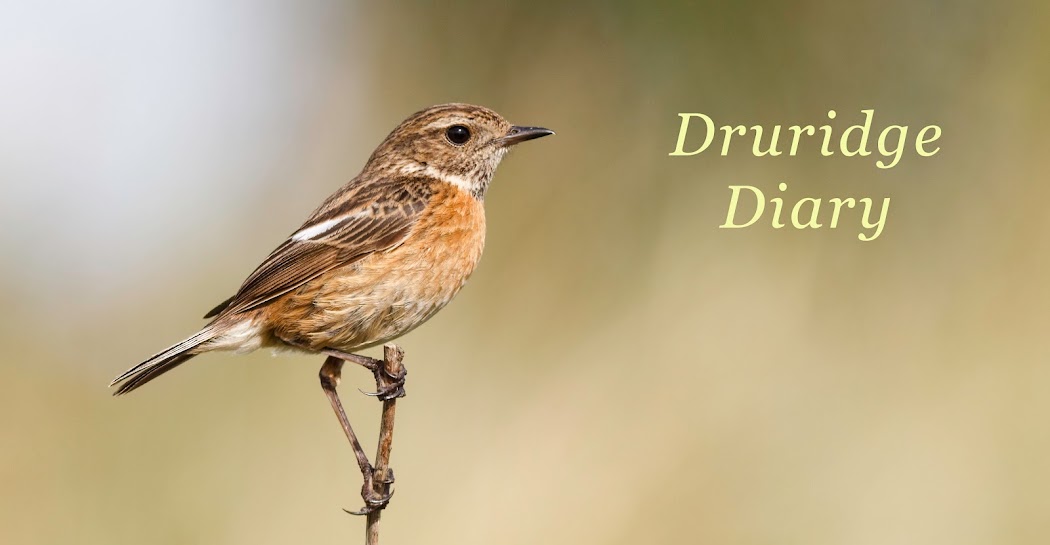Conditions were very good for the birds for the first half of the trip, with tens of thousands of birds passing through but high - like hayflies as Alan Gilbertson describes them. These were mostly honey buzzards and black kites with short-toed eagles, booted eagles, Egyptian vultures, sparrowhawks and griffon vultures. When the wind blows, which it does a lot in the Straits, the birds drop lower (especially in the Levante wind from the East which could blow them into the Atlantic) bringing them closer to the observers and photographers who are also there in great numbers.
As well as raptors there are migrating storks, waterbirds and passerines alongside the resident birds in the peninsula.
This photo sums up Tarifa for me, on the good days they just keep coming at you...
 |
| A group of black kites migrating through Tarifa |
We've had news from the BTO about a robin we ringed in July last year, it was still in juvenile plumage when we caught it so will have hatched at Druridge. Sadly it was found dead last week in Redcar, where presumably it had taken up residence. Even though Robin is the second-most commonly caught bird by us at Druridge, this is the first ever recovery we've had.
The BTO have also released the annual ringing report for 2017 which you can find on their website.
The report gives ringing totals by species and area and list notable recoveries of birds including a report of a Leach's Petrel we caught in in July 2016 at Druridge (read about it here) which was already ringed, having been caught on Inner Farne two tears earlier. The same bird was caught again on Inner Farne in July 2016, ten days before we caught it at Druridge and it was caught again in July 2017 way up at Sumburgh in the Shetland Islands. Recoveries like this give us a fantastic insight into the movements of these seabirds. Here are the details:
BX91489 Adult 29-07-2014 Inner Farne, Farne Islands: 55°36'N 1°40'W (Northumberland)
Caught by ringer 01-08-2014 Inner Farne, Farne Islands: 55°36'N 1°40'W (Northumberland) 0km 0y 0m 3d
Caught by ringer 20-07-2016 Inner Farne, Farne Islands: 55°36'N 1°40'W (Northumberland) 0km 1y 11m 21d
Caught by ringer 30-07-2016 Druridge Links: 55°15'N 1°34'W (Northumberland) 40km S 2y 0m 1d
Caught by ringer 26-07-2017 Sumburgh: c. 59°51'N 1°17'W (Shetland) 473km N 2y 11m 27d


At Druridge yesterday (22nd). Mixture of Warblers in bushes at start of track to hides. One rather pale bird, seemed bigger than Willow/Chiff, but that could be a trick of light and colour difference. Light back, paler underside. Colour of head and back seemed even and unmarked. Faint supercillium. Yellow mark showing in front of folded carpal joint. Looked longer billed that W/C. I struggle with brown/green Warblers because I'm red/green/brown colour blind. Probably a juvenile of something. Head/face shape looked wrong for Garden W.
ReplyDeleteOne Chiff singing as if it were Spring!